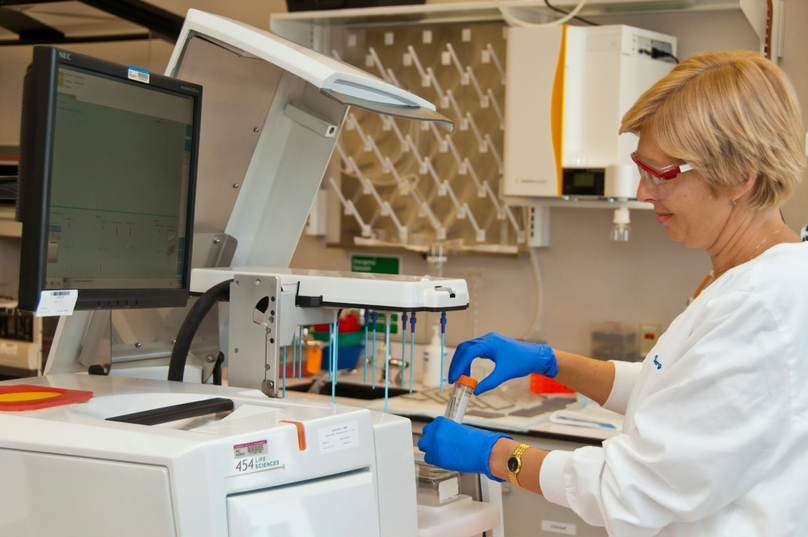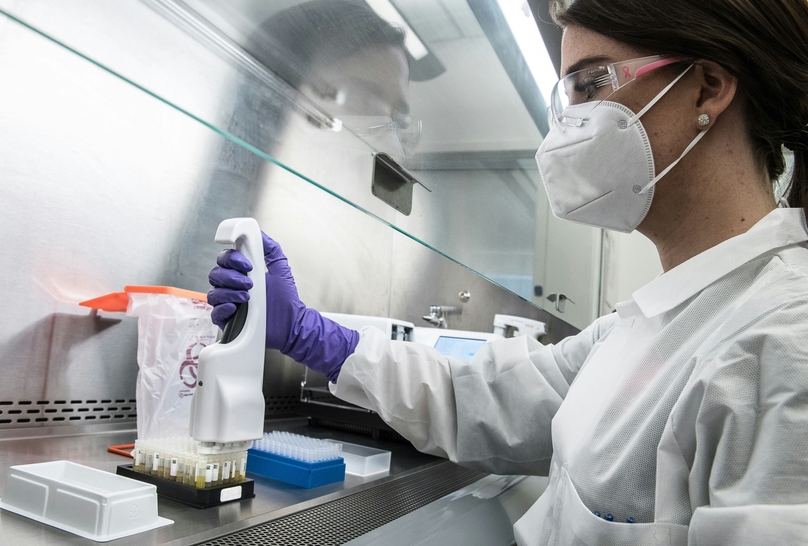In response to the global COVID-19 pandemic, testing laboratories have faced unprecedented challenges, including managing a massive influx of samples and reporting accurate results swiftly. A Laboratory Information Management System (LIMS) equipped with specific features can significantly enhance a laboratory's ability to respond effectively. This article outlines essential features of LIMS for COVID testing laboratories that are critical for laboratory success during and beyond the pandemic.
Highly Secure, Cloud-Based Accessibility
The ability for various stakeholders to access the LIMS from anywhere cannot be overstated. A cloud-based LIMS facilitates remote access for laboratory staff, healthcare providers, and management, making it easier to manage workflows and share information securely. This feature also supports real-time data sharing and collaboration, which is vital for timely decision-making and public health reporting.
Streamlined Test Ordering and Sample Management
To eliminate the cumbersome process of manual data entry from paper forms, a LIMS should provide an interface for healthcare providers to order tests electronically. This advance ordering not only helps laboratories anticipate the workload but also reduces errors associated with manual data entry. An effective LIMS automates sample tracking from reception through processing to result delivery, ensuring no sample is misplaced or overlooked.
Batched Sample Processing Capability
Given the volume of COVID-19 tests required, a LIMS must support batch processing of samples. This includes the ability to handle 96-well or 384-well plates, streamlining the testing process and allowing for high-throughput testing. The LIMS should effortlessly integrate with various liquid handlers and PCR instruments, managing data across different platforms without compromising accuracy or efficiency.
Automated Data Analysis and Result Interpretation
Once testing is complete, the LIMS must be capable of analyzing data and generating results automatically. This involves assessing control samples, interpreting test outcomes, and flagging samples that may require re-testing. Automation in this area reduces the turnaround time for delivering results to healthcare providers and patients.
Efficient Result Review and Reporting
After analysis, results must be reviewed and approved by authorized personnel. A LIMS should facilitate batch review of negative samples and streamline the approval process to expedite report generation. Automated report generation and delivery mechanisms, such as secure email or electronic fax, are crucial for efficient communication with ordering physicians or healthcare providers.
Advanced Queue-Based Sample Tracking
To manage the high volume of samples effectively, a LIMS should employ a queue-based tracking system. This feature ensures that each sample is accounted for at every stage of the testing process, from reception to result reporting. Such a system minimizes the risk of sample loss and enhances the laboratory's ability to provide timely updates on sample status.
Simplified Re-testing Workflow
Not all samples yield conclusive results on the first attempt; thus, a LIMS must facilitate easy re-testing. This includes generating new sample records for re-tests and ensuring that original sample data is not overwritten. The system should handle both new tests and re-tests concurrently, ensuring efficient management of the re-testing process.
Direct Reporting to Public Health Authorities
Critical to pandemic response is the timely reporting of test results to public health authorities. A LIMS should enable direct reporting in the required format and timeframe, whether through electronic data interchange or integration with public health databases. This feature streamlines the reporting process, ensuring that laboratories can comply with public health mandates without additional administrative burden.
Customization and Scalability
Each COVID-19 testing laboratory has unique needs based on its operational scale, testing protocols, and regulatory environment. A LIMS must offer customization options to align with specific laboratory workflows and the flexibility to scale up operations as testing demands increase. Scalability is key to sustaining high testing volumes and adapting to evolving testing guidelines.
Simplified Inventory Tracking
Effective inventory management is critical for COVID-19 testing laboratories, where the ability to quickly locate and process samples can significantly impact testing turnaround times. LIMS software, like Genemod’s inventory management solution, empowers laboratories by providing detailed storage insights and the ability to track every specimen and reagent with precision. This system not only prevents loss or misplacement of valuable samples but also streamlines the entire testing workflow.
By implementing an electronic inventory management system, laboratories can replicate their physical storage setup in a digital environment, creating a virtual freezer that mirrors the real-life arrangement of samples and reagents. This feature facilitates effortless identification and retrieval of samples, ensuring that laboratory staff can access the resources they need without delays. Centralizing inventory and resource planning within the LIMS ensures that all team members have immediate access to up-to-date information, enhancing efficiency and collaboration in the lab.
Genemod's Solution for COVID-19 Testing
At Genemod, we recognize the critical role that LIMS plays in the success of COVID-19 testing laboratories. Our LIMS solution is designed to address the unique challenges of the pandemic, offering secure cloud-based access, streamlined workflows, and comprehensive data analysis features.
With Genemod's LIMS for COVID-19 testing, laboratories can enhance their testing capacity, improve result accuracy, and maintain compliance with public health regulations. Contact Genemod today to learn how our LIMS can support your laboratory's pandemic response efforts and beyond.


















